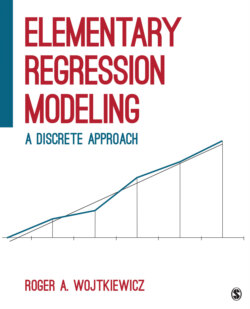Читать книгу Elementary Regression Modeling - Roger A. Wojtkiewicz - Страница 17
На сайте Литреса книга снята с продажи.
Discrete Approach to Regression
ОглавлениеThe discrete approach to explaining regression for social scientists begins with the idea that the central question in regression analysis is about how social groups are different from one another. The groups are compared on a dependent variable. Discrete variables are simply variables, whether categorical or interval, that have a finite number of values rather than the theoretically infinite, or at least very many values, as is the case for continuous interval variables.3
In this book, I focus on two ways of measuring the dependent variable: the mean and the log odds. Although the groups we often compare in social science research can be defined by categorical variables, the characteristics of groups are often described by both interval and categorical variables. The mean is used to measure interval variables, and the log odds is used to measure categorical variables. We compare groups by taking differences in means or log odds between groups.
Dummy variable regression is a method for analyzing group differences. Although the classical approach to discussing regression analysis starts with interval variables and eventually discusses dummy variables as a special case, the approach in this book starts with dummy variables and then addresses continuous variables as an equal partner. The discrete approach provides the basis for the discussion of control models, interactions, spline variables, and research questions.
